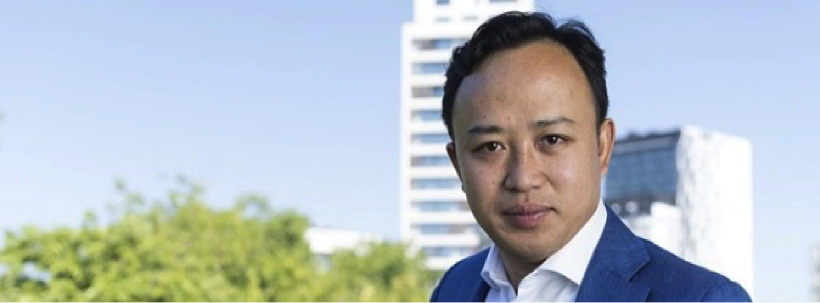(P) Huawei: Artificial intelligence will help the EU achieve its Farm to Fork sustainable farming strategy



The Farm to Fork strategy, which the European Commission presented on May 20, is central to the European Green Deal. Its main aim is to make food production and consumption sustainable for European citizens.
"Europe needs to seize the opportunities offered by AI in the area of farming. This will involve substantial investments and a regulatory approach creating an open ecosystem," Abraham Liu said.
Connecting, collecting, and analyzing big data will be vital to maximizing efficiency, increasing productivity, and reducing CO2 emissions to meet climate targets, and AI will play an essential role in these.
The new European strategy wants to find innovative solutions to mitigate climate change while helping farmers achieve more productivity and higher yields.
"Connectivity is also very important. Without it, none of the ambitions and policies, including those linked to Sustainable Development Goals and the Farm to Fork strategy, will be possible," added the Huawei representative to the EU institutions.
"Everything flows from Connectivity. With Connectivity comes AI capability – a crucial component of the Farm to Fork Strategy – and with AI comes reduced costs for farmers, improved soil management, a reduction in the use of pesticides, freshwater, and greenhouse gas emissions," Abraham Liu added.
The online debate AI in Farming: making the 'Farm to Fork' agenda a global standard for sustainability?, organized by Public Affairs Bruxelles in partnership with Huawei and supported by GeSI, SMARTKAS and DroneThinkDo brought together policymakers, think tanks and representatives of the agricultural and digital sectors. They discussed the best approaches for supporting the Commission's strategy.
Academia and industry should work together to drive innovation and develop standards, while governments need to invest in training and up-skilling for people. This way, they would play a full role in the economy, and nobody would be left behind, added Abraham Liu.
For Huawei, Artificial Intelligence is at the heart of Everything. "We are investing in open, online learning, to give people the basic skills they need to get employment and bridge the digital skills gap. We are using mobile classrooms to bring digital skills to under-served and remote communities," said Huawei's Liu.
In 2018, using AI and augmented reality, Huawei created StorySign - the world's first literacy platform for deaf children, a free app that translates the text from selected books into sign language. The company is also working on an AI-based device for non-trained professionals to identify children with visual disorders as early as possible. Another app by Huawei called Facing Emotions, allows the visually impaired to "see" the emotion on someone's face by using the rear camera of Huawei's HUAWEI Mate 20 Pro phone and by analyzing their expression using artificial intelligence (AI).
The company has also Huawei has taught its HUAWEI Mate 20 Pro smartphone to compose the third and fourth movements of Schubert's famously 'Unfinished Symphony,' by using the power of Artificial Intelligence.
Huawei's recently announced Ascend family of AI chips would power a full range of AI scenarios for customers and partners. They will provide AI capabilities for public and private clouds, the industrial Internet of Things, consumer devices such as smartphones and wearables, and the edge environments that bring Everything together.
Huawei, a leading global provider of information and communications technology (ICT) infrastructure and smart devices, has more than 194,000 employees and operates in over 170 countries and regions. Founded in 1987, it is a private company fully owned by its employees.
In Europe, Huawei currently employs over 13,300 staff and runs two regional offices and 23 R&D sites. So far, Huawei has established 230 technical cooperation projects and has partnered with over 150 universities across Europe. It offers integrated solutions across four key domains: telecom, IT, smart devices, and cloud services.
Photo source: courtesy of EU Reporter.
(p) - This article is an advertorial.